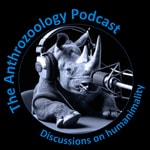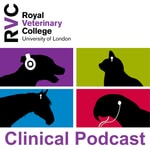The Anthrozoology Podcast – Détails, épisodes et analyse
Détails du podcast
Informations techniques et générales issues du flux RSS du podcast.

The Anthrozoology Podcast
Anthrozoology Podcast
Fréquence : 1 épisode/41j. Total Éps: 43

Classements récents
Dernières positions dans les classements Apple Podcasts et Spotify.
Apple Podcasts
🇬🇧 Grande Bretagne - socialSciences
10/07/2025#95🇬🇧 Grande Bretagne - socialSciences
09/07/2025#65🇬🇧 Grande Bretagne - socialSciences
08/07/2025#58🇬🇧 Grande Bretagne - socialSciences
10/12/2024#74🇬🇧 Grande Bretagne - socialSciences
09/12/2024#58🇨🇦 Canada - socialSciences
14/11/2024#89🇬🇧 Grande Bretagne - socialSciences
09/09/2024#89🇬🇧 Grande Bretagne - socialSciences
08/09/2024#69
Spotify
Aucun classement récent disponible
Liens partagés entre épisodes et podcasts
Liens présents dans les descriptions d'épisodes et autres podcasts les utilisant également.
See all- https://www.maintenancephase.com/
101 partages
- https://katzenlife.wordpress.com/
33 partages
- https://www.facebook.com/anthrozoopod/
44 partages
- https://www.facebook.com/anthrozoopod
5 partages
- https://www.facebook.com/houndcharming/
3 partages
Qualité et score du flux RSS
Évaluation technique de la qualité et de la structure du flux RSS.
See allScore global : 32%
Historique des publications
Répartition mensuelle des publications d'épisodes au fil des années.
Ep 36 2/2: Anthrozoological Insights with Dr Aubrey Fine
samedi 31 août 2024 • Durée 39:53
Ep 36 - Anthrozoological Insights with Dr Aubrey Fine, pt 2/2.
Welcome to Episode 36 of the Anthrozoology Podcast. In this episode, we explore companion-animal - human connections, psychology, and interventions with renowned psychologist and anthrozoologist, Dr Aubrey Fine. Dr. Fine shares his career inspiration, challenges, and research interests in companion-animal-assisted therapy. He recounts his personal journey from a fear of companion-animals to working with them in therapy, combining clinical work, writing, and research in companion-animal-assisted interventions since the mid-1960s. Dr. Fine discusses using animals for therapy and communication with children, highlighting the introduction of his first pet, a gerbil named Sasha, to a program for children with learning disabilities in 1973.
Dr Fine describes the diverse range of companion-animals he works with, from dogs to lizards, and emphasizes the importance of respecting all as sentient beings. He shares personal stories, such as his connection with a bearded dragon named Spikey, who helped children with similar challenges. The episode also addresses the significance of companion-animal welfare, education, and agency, with Dr. Fine stressing the importance of recognising the non-verbal cues of companion-animals and respecting their boundaries.
Please subscribe to get notified about our next podcast!
Follow us on X: @TheAnthrozoopod
Follow us on Facebook: https://www.facebook.com/anthrozoopod/
Follow us on TikTok @anthrozoology_
To access audio versions please our official Website: https://anthrozoopod.wixsite.com/anthrozoopod
Podlet Guest
Dr Aubrey Fine
email: ahfine@gmail.com
Websites: https://www.aubreyhfine.com/
PodCrew
Dr. Kris Hill PhD Candidate, University of Exeter
https://katzenlife.wordpress.com/
Dr. Michelle Szydlowski
www.internationalelephants.org
@intl_elephants
Sarah Oxley Heaney PhD Candidate, University of Exeter
www.kissingsharks.com/
N.B. Copyright of image behind Sarah in the video is held by Cristina Zenato.
References
Fine, A.H. et al. (2023) The Routledge International Handbook of Human-Animal Interactions and Anthrozoology, The Routledge International Handbook of Human-Animal Interactions and Anthrozoology. Routledge. Available at: https://doi.org/10.4324/9781032153346.
Fine, A.H. (2014) Our Faithful Companions - Exploring the essence of our kinship with animals. Alpine Pubns Inc. Available at: https://www.aubreyhfine.com/faithful-companion.
Fine, A.H. (2019) ‘Handbook on Animal-Assisted Therapy: Foundations and Guidelines for Animal-Assisted Interventions’, Handbook on Animal-Assisted Therapy: Foundations and Guidelines for Animal-Assisted Interventions, pp. 1–515. Available at: https://doi.org/10.1016/C2017-0-03315-3. https://www.hse.ru/data/2019/04/24/1182243591/[Aubrey_H._Fine]_Handbook_on_Animal-Assisted_Thera(z-lib.org).pdf
Fine, A.H. and J, E.C. (2016) Afternoons with Puppy - Inspirations from a Therapist and His Animals. Purdue University Press. Available at: https://www.press.purdue.edu/9781557537669/.
Thefamilydog (2015) Stop The 77. YouTube. Available at: https://www.youtube.com/watch?v=ABDrhNBwdpk.
Ep 35, 1/2: Anthrozoological Insights with Dr Aubrey Fine, 1/2 #35 Pt1
mercredi 31 juillet 2024 • Durée 33:59
Welcome to Episode 35 of the Anthrozoology Podcast. In this episode, we explore companion-animal - human connections, psychology, and interventions with renowned psychologist and anthrozoologist, Dr Aubrey Fine. Dr. Fine shares his career inspiration, challenges, and research interests in companion-animal-assisted therapy.
He recounts his personal journey from a fear of companion-animals to working with them in therapy, combining clinical work, writing, and research in companion-animal-assisted interventions since the mid-1960s. Dr. Fine discusses using animals for therapy and communication with children, highlighting the introduction of his first pet, a gerbil named Sasha, to a program for children with learning disabilities in 1973. Dr Fine describes the diverse range of companion-animals he works with, from dogs to lizards, and emphasizes the importance of respecting all as sentient beings. He shares personal stories, such as his connection with a bearded dragon named Spikey, who helped children with similar challenges. The episode also addresses the significance of companion-animal welfare, education, and agency, with Dr. Fine stressing the importance of recognising the non-verbal cues of companion-animals and respecting their boundaries. Please subscribe to get notified about our next podcast!
Follow us on :
Facebook: https://www.facebook.com/anthrozoopod/
TikTok @anthrozoology_
To access audio versions please our official Website: https://anthrozoopod.wixsite.com/anthrozoopod Podlet Guest Dr Aubrey Fine email: ahfine@gmail.com Websites: https://www.aubreyhfine.com/ PodCrew Dr. Kris Hill https://academiccatlady.com/ Dr. Michelle Szydlowski ms835@exeter.ac.uk www.internationalelephants.org @intl_elephants Sarah Oxley Heaney PhD Candidate, University of Exeter sh750@exeter.ac.uk www.kissingsharks.com/ N.B. Copyright of image behind Sarah in the video is held by Cristina Zenato. References Fine, A.H. et al. (2023) The Routledge International Handbook of Human-Animal Interactions and Anthrozoology, The Routledge International Handbook of Human-Animal Interactions and Anthrozoology. Routledge. Available at: https://doi.org/10.4324/9781032153346. Fine, A.H. (2014) Our Faithful Companions - Exploring the essence of our kinship with animals. Alpine Pubns Inc. Available at: https://www.aubreyhfine.com/faithful-companion. Fine, A.H. (2019) ‘Handbook on Animal-Assisted Therapy: Foundations and Guidelines for Animal-Assisted Interventions’, Handbook on Animal-Assisted Therapy: Foundations and Guidelines for Animal-Assisted Interventions, pp. 1–515. Available at: https://doi.org/10.1016/C2017-0-03315-3. https://www.hse.ru/data/2019/04/24/1182243591/[Aubrey_H._Fine]_Handbook_on_Animal-Assisted_Thera(z-lib.org).pdf Fine, A.H. and J, E.C. (2016) Afternoons with Puppy - Inspirations from a Therapist and His Animals. Purdue University Press. Available at: https://www.press.purdue.edu/9781557537669/. Thefamilydog (2015) Stop The 77. YouTube. Available at: https://www.youtube.com/watch?v=ABDrhNBwdpk.
The Anthrozoology Podcast - Defining the field Pt1, with Ken Shapiro #27
Saison 2024 · Épisode 27
dimanche 19 novembre 2023 • Durée 46:46
Today we are starting a new recurrent theme on the podcast, focused on the history, definition, and future of the field of anthrozoology. These episodes will be interspersed among our other content throughout the upcoming year.
We are honored to welcome our podcast guest, Dr. Ken Shapiro. Dr. Shapiro is a clinical psychologist, focused on the assessment and treatment of juveniles and adults who abuse animals. He is also the founder of the Animals and Society Institute, a founding editor of Society and Animals journal and the Brill Human-animal Studies book series, and the co-founding editor of the Journal of Applied Animal Welfare Science
Please subscribe to get notified about our next podcast!
Follow us on Twitter: @TheAnthrozoopod
Follow us on Facebook: https://www.facebook.com/anthrozoopod/
Follow us on TikTok @anthrozoology_
To access audio versions please our official Website: https://anthrozoopod.wixsite.com/anthrozoopod
PodCrew
Dr. Kris Hill PhD Candidate, University of Exeter kh458@exeter.ac.uk https://katzenlife.wordpress.com/
Dr. Michelle Szydlowski ms835@exeter.ac.uk www.internationalelephants.org @intl_elephants
Sarah Oxley Heaney PhD Candidate, University of Exeter sh750@exeter.ac.uk hwww.kissingsharks.com/
Podlet Guest:
Dr Ken Shapiro, https://www.linkedin.com/in/animalsandsociety/
Through expert interviews, personal insights, and research findings, "The Anthrozoology Podcast" seeks to foster a deeper understanding of our relationships with animals and inspire meaningful conversations about our place in the natural world. Subscribe to "The Anthrozoology Podcast" on your preferred podcast platform and join us on this enlightening journey as we explore the intricacies of anthropomorphism and its impact on our perception of the morethanhuman-animal kingdom.
References:
Alger, J. M., & Alger, S. F. (1997). Beyond Mead: Symbolic Interaction between Humans and Felines. Society & Animals, 5(1), 65-81. https://doi.org/10.1163/156853097X00222
Animals & Society Institute: https://www.animalsandsociety.org/
DeMello, M., & Shapiro, K. (2010). The State of Human-Animal Studies. Society & Animals, 18(3), 307-318. https://doi.org/10.1163/156853010X510807
Outdoor Cats. Special Issue in Society & AnimalsVolume 30 (2022): Issue 7 (Dec 2022). https://brill.com/view/journals/soan/30/7/soan.30.issue-7.xml
Shapiro, Ken. Defining HAS: Naming the Field by Ken Shapiro. Video: https://www.animalsandsociety.org/resources/resources-for-scholars/defining-human-animal-studies-an-asi-video-project/naming-field-ken-shapiro/
Shapiro, K. (2002). The State of Human-Animal Studies: Solid, at the Margin!. Society & Animals, 10(4), 331-337. https://doi.org/10.1163/156853002320936773
Shapiro, K. (2020). Human-Animal Studies: Remembering the Past, Celebrating the Present, Troubling the Future. Society & Animals, 28(7), 797-833. https://doi.org/10.1163/15685306-BJA10029
Singer, Peter (1975). Animal Liberation. https://www.goodreads.com/en/book/show/29380
Wilkie, R. (2015). Academic “Dirty Work”: Mapping Scholarly Labor in a Tainted Mixed-Species Field. Society & Animals, 23(3), 211-230. https://doi.org/10.1163/15685306-12341312
The Anthrozoology Podcast - Abandoned Cats in Saudi Arabia Pt2 #26
Saison 2023 · Épisode 26
dimanche 22 octobre 2023 • Durée 30:14
In this episode, Mohammed from Saudi Arabia's Tabuk Paws joins us to share his experiences surrounding the issue of cat abandonment in Saudi Arabia. This episode is the second in a series that will explore the dimensions of cat abandonment in Saudi Arabia. Mohammed has been working with Sarah, one of our podcast hosts for 10 years, and together they, with other volunteers, are trying to bring changes to improve the lives of street-living felines. The paper referred to in the podcast is found here -https://anthrozoologyassymbioticethics.wordpress.com/ease-working-paper-series-volume-1-emerging-voices/ pages 54-88. It can also be read on Sarah's website which also has conference presentations discussing feline lives in Saudi Arabia : https://www.kissingsharks.com/felinelivessaudiarabia The viral video of Mohammed and Lovebug mentioned in the podcast can be found here: https://vm.tiktok.com/ZGJwPK17Q/ Links to Tabuk Paws website and social media can be found here: https://linktr.ee/tabukpaws
The Anthrozoology Podcast - Abandoned Cats in Saudi Arabia #25
Saison 2024 · Épisode 25
jeudi 7 septembre 2023 • Durée 32:25
Ep25: Abandoned Cats in Saudi Arabia In this episode, we'll be delving into a pressing and often overlooked concern as we engage in a discussion with Sarah, one of our podcast hosts. Sarah's unique perspective emerges from her research into the pervasive issue of cat abandonment in Saudi Arabia. Notably, she's also an integral member of a small yet dedicated rescue team operating within a city in the country. Sarah's work is more than just academic; it's deeply rooted in her active participation in the field, where she plays a vital role in rescuing abandoned felines. Her insights, therefore, offer a comprehensive understanding of the challenges faced by these abandoned animals and the efforts made to alleviate their suffering. This episode marks the beginning of a series that will explore the multifaceted dimensions of cat abandonment in Saudi Arabia. We'll examine the causes, the impact on local communities, and the tireless work being undertaken by individuals to make a difference. Join us in this informative and insightful conversation as we shed light on the complex issue of cat abandonment in Saudi Arabia, and the dedicated individuals striving to create positive change. Thank you for tuning in to this podcast, where we begin our exploration of this vital subject.
The Anthrozoology Podcast - Exploring Anthropomorphism and its Implications #24
Saison 2023 · Épisode 24
mercredi 12 juillet 2023 • Durée 44:09
Episode 24 : The Anthrozoology Podcast: Exploring Anthropomorphism and its Implications Welcome to "The Anthrozoology Podcast," where we dive deep into the fascinating world of anthropomorphism and its impact on our understanding of human-animal relationships. Join your hosts, Sarah, Kris, and Michelle, as we navigate the complexities of attributing human characteristics to non-human beings and objects.
In this podcast, we explore the concept of anthropomorphism and its various definitions. From the attribution of human-like physical features to nonhumans, to ascribing humanlike intentions, beliefs, and emotions, anthropomorphism is a topic that sparks both fascination and debate. We examine the origins of the term and its significance across different cultures, questioning whether it is solely a Western-dominated perspective or a broader form of knowledge system. "The Anthrozoology Podcast" delves into the reasons behind anthropomorphism's existence and its implications for our understanding of morethanhuman-animals. We discuss the different types of anthropomorphism, and examine how nuanced categorizations shed light on the diverse ways in which humans attribute human characteristics to non-human entities. Through thought-provoking discussions, we examine the applications of anthropomorphism in various fields, including theology, robotics, and our everyday interactions with animals. We explore how anthropomorphism can be both a tool for understanding and a potential hindrance, obscuring the true nature of animal experiences and behaviors. Join us as we unravel the controversies, challenges, and possibilities surrounding anthropomorphism. Please subscribe to get notified about our next podcast! Follow us on Twitter: @TheAnthrozoopod Follow us on Facebook: https://www.facebook.com/anthrozoopod/ Follow us on TikTok @anthrozoology_ To access audio versions please our official Website: https://anthrozoopod.wixsite.com/anthrozoopod PodCrew Dr. Kris Hill PhD Candidate, University of Exeter kh458@exeter.ac.uk https://katzenlife.wordpress.com/ Dr. Michelle Szydlowski ms835@exeter.ac.uk www.internationalelephants.org @intl_elephants Sarah Oxley Heaney PhD Student, University of Exeter sh750@exeter.ac.uk www.kissingsharks.com/ Through expert interviews, personal insights, and research findings, "The Anthrozoology Podcast" seeks to foster a deeper understanding of our relationships with animals and inspire meaningful conversations about our place in the natural world. Subscribe to "The Anthrozoology Podcast" on your preferred podcast platform and join us on this enlightening journey as we explore the intricacies of anthropomorphism and its impact on our perception of the morethanhuman- animal kingdom. References: Here
Copyright for Horse Image Image by Astrid Schmid from Pixabay
The Anthrozoology Podcast - Introducing Our New Logo #23
Saison 2023 · Épisode 23
jeudi 18 mai 2023 • Durée 03:48
Episode 23: Introducing Our New Logo The Anthrozoology Podcast is pleased to share some exciting news! Join us for this quick update introducing our brand new logo, our updated goals, and our future plans. The logo, along with other updates to the podcast, were made possible through the generous support of the Australasian Animal Studies Association (AASA) Activity Grant. Please subscribe to get notified about our next podcast! Follow us on Twitter: @TheAnthrozoopod Follow us on Facebook: https://www.facebook.com/anthrozoopod/ Follow us on TikTok @anthrozoology_ To access audio versions please our official Website: https://anthrozoopod.wixsite.com/anthrozoopod PodCrew Dr. Kris Hill PhD Candidate, University of Exeter kh458@exeter.ac.uk https://katzenlife.wordpress.com/ Dr. Michelle Szydlowski ms835@exeter.ac.uk www.internationalelephants.org @intl_elephants Sarah Oxley Heaney PhD Student, University of Exeter sh750@exeter.ac.uk hwww.kissingsharks.com/
The Anthrozoology Podcast - What's it like to be labelled 'Feral'? #22
Saison 2023 · Épisode 22
dimanche 9 avril 2023 • Durée 56:47
Today we are continuing our discussion of ‘power words’, terms that humans use to control the narratives of otherthanhuman lives. Today’s term is ‘feral’, and it is a contentious term, in our opinion. Our paper on this topic ‘Uncivilised Behaviors’ was published last year in Society and Animals journal, and today we will unpack that paper in a discussion with our special guest and coauthor, Debbie Busby. Please subscribe to get notified about our next podcast!
Follow us on Twitter: @TheAnthrozoopod
Follow us on Facebook: https://www.facebook.com/anthrozoopod/
Follow us on TikTok @anthrozoology_
To access audio-only versions please our official
Website: https://anthrozoopod.wixsite.com/anthrozoopod
Podcrew: Dr. Kris Hill PhD Candidate, University of Exeter kh458@exeter.ac.uk https://katzenlife.wordpress.com/ Dr. Michelle Szydlowski ms835@exeter.ac.uk www.internationalelephants.org @intl_elephants Sarah Oxley Heaney PhD Student, University of Exeter sh750@exeter.ac.uk www.kissingsharks.com/
Podlet Guest: Debbie Busby Registered Clinical Animal Behaviourist for Horses and Dogs PhD Candidate, Manchester Metropolitan University deborah.busby@stu.mmu.ac.uk https://evolutionequine.wordpress.com/ References and Resources Merrian-Webster Dictionary Definition of “Feral” https://www.merriam-webster.com/dictionary/feral#:~:text=%3A%20of%2C%20relating%20to%2C%20or,not%20domesticated%20or%20cultivated%20%3A%20wild Hill, K. Szydlowski, M. Oxley Heaney, S. Busby, D. (2022). Uncivilized behaviors: how humans wield “feral” to assert power (and control) over other species. Society & Animals. Online ahead of print. https://doi.org/10.1163/15685306-bja10088 Hill, K. (2022). Feral and out of control: a moral panic over free-roaming cats? in Anthrozoology Studies: Animal Life and Human Culture, edited by I. Frasin, G. Bodi, S. Bulei, C. D. Vasiliu. Romania: Presa Universitară Clujeană. pp. 123-157. http://www.editura.ubbcluj.ro/bd/ebooks/pdf/3343.pdf Ingold, T. (2000). “From trust to domination: an alternative history of human-animal relations.” In The Perception of the Environment: Essays in Livelihood, Dwelling and Skill. Edited by Tim Ingold. London, New York: Routledge. Mica, A. (2010). Moral Panic, Risk or Hazard Society — the Relevance of a Theoretical Model and Framings of " Maidan " Dogs in Chişinău and Bucharest. Sociological Review, 169, 41–56. Pauwels, A. (2003). Linguistic Sexism and Feminist Linguistic Activism. In J. Holmes & M. Meyerhoff (Eds.), The Handbook of Language and Gender (pp. 550–570). https://doi.org/10.1002/9780470756942.ch24 Price, E. O. (2003). Animal Domestication and Behavior. Oxford, UK: Oxford University Press. Szydlowski, M., Hill, K., Oxley Heaney, S., Hooper, J. (2022). Domestication and domination: human terminology as a tool for controlling otherthanhuman animal bodies. TRACE: Journal for Human-Animal Studies. 8(1). https://doi.org/10.23984/fjhas.110388
The Anthrozoology Podcast - Animal Hoarding in Sweden #21
Saison 2023 · Épisode 21
vendredi 17 mars 2023 • Durée 52:48
In this episode we are joined by Therese Lillesköld to discuss the issue of animal hoarding and research she has conducted on animal hoarding in Sweden. The animals who are hoarded suffer immensely, but the hoarders themselves also suffer. These people are suffering from a psychiatric illness and often have other underlying social and mental health issues. Therefore, a vital part of helping the animals must include social support for the hoarders, including preventive measures such as intervening and aiding overwhelmed caregivers before a serious hoarding situation develops.
PodCrew
Dr. Kris Hill PhD Candidate, University of Exeter kh458@exeter.ac.uk https://katzenlife.wordpress.com/
Dr. Michelle Szydlowski ms835@exeter.ac.uk www.internationalelephants.org @intl_elephants
Sarah Oxley Heaney PhD Student, University of Exeter sh750@exeter.ac.uk www.kissingsharks.com
Podlet
Therese Lillesköld Position: CEO of Empatia AB in Sweden Email: info@empatia.se www.empatia.se
References cited and other sources:
Hoarding Disorder diagnosis: https://www.psychiatry.org/Patients-Families/Hoarding-Disorder Carin Holmberg & Therese Lillesköld (2022) Animal hoarders: Not just an animal welfare problem (Swedish): https://empatiashop.se/product/djursamlare-och-samlade-djur-inte-bara-ett-djurskyddsproblem/
Gunther, I., Raz, T., Even Zor, Y., Bachowski, Y., & Klement, E. (2016). Feeders of Free-Roaming Cats: Personal Characteristics, Feeding Practices, and Data on Cat Health and Welfare in an Urban Setting of Israel. Front Vet Sci, 3, 21. https://doi.org/10.3389/fvets.2016.00021
Nadal, Z., Ferrari, M., Lora, J., Revollo, A., Nicolas, F., Astegiano, S., & Díaz Videla, M. (2022). Noah’s Syndrome: Systematic Review of Animal Hoarding Disorder. Human-Animal Interaction Bulletin, 10(1), 1–21. https://doi.org/10.1079/hai.2022.0003
Prato-Previde, E., Basso Ricci, E., & Colombo, E. S. (2022). The Complexity of the Human–Animal Bond: Empathy, Attachment and Anthropomorphism in Human–Animal Relationships and Animal Hoarding. Animals, 12(20), 1–30. https://doi.org/10.3390/ani12202835
Reinisch, A. I. (2008). Understanding the human aspects of animal hoarding. Canadian Veterinary Journal, 49(12), 1211–1215. https://www.ncbi.nlm.nih.gov/pmc/articles/PMC2583418/
Wilkinson, J., Schoultz, M., King, H. M., Neave, N., & Bailey, C. (2022). Animal hoarding cases in England: Implications for public health services. Frontiers in Public Health, 10. https://doi.org/10.3389/fpubh.2022.899378
Kitten Lady (Hannah Shaw) shared her perspective based from many years of experience working with cat hoarding cases. TDLR: A little kindness goes a long way! What do you think? https://www.youtube.com/watch?v=OoDYsVlxXs8
The Anthrozoology Podcast - Nepal's Elephants - Complex Lives #20
Saison 2023 · Épisode 20
lundi 30 janvier 2023 • Durée 56:31
In this episode, we discuss the challenges facing captive elephants and mahouts working in tourism within the small country of Nepal. Our guest today is co-host Dr. Michelle Szydlowski, who has spent the last decade focused on pachyderms, ecotourism, and conservation.
Please subscribe to get notified about our next podcast!
Follow us on Twitter: @TheAnthrozoopod
Follow us on Facebook: https://www.facebook.com/anthrozoopod/
To access audio-only versions please our official Website: https://anthrozoopod.wixsite.com/anthrozoopod
PodCrew
Dr Kris Hill PhD Candidate, University of Exeter kh458@exeter.ac.uk https://katzenlife.wordpress.com/
Dr. Michelle Szydlowski Assistant Professor at Beacon College, US ms835@exeter.ac.uk www.internationalelephants.org
Sarah Oxley Heaney PhD Student, University of Exeter sh750@exeter.ac.uk www.kissingsharks.com
References and further reading
Acharya, K.P., Acharya, N. and Wilson, R.T. (2019) Animal Welfare in Nepal. Journal of Applied Animal Welfare Science, 22(4): 342-356. https: //doi.org/10.1080/10888705.2018.1519437
Agrawal, A. (1995) Dismantling the Divide Between Indigenous and Scientific Knowledge. Development and Change. 26(3): 413-439. https: //doi.org/10.1111/j.1467- 7660.1995.tb00560.x
Barua, M. (2017), Nonhuman labour, encounter value, spectacular accumulation: the geographies of a lively commodity. Transactions of the Institute of British Geographers. 42: 274-288. https://doi.org/10.1111/tran.12170
Bhandari, K. (2012). Tourism or Conservation? A Controversy in Chitwan National Park, Nepal. In Controversies in Tourism, O. Moufakkir and P.M. Burns, eds. Ebook. CABI. https: //www.cabi.org/cabebooks/ebook/20113399890
Rizzolo, J. and Bradshaw, G. (2016) Prevalence and Patterns of Complex PTSD in Asian Elephants (Elephas maximus). Asian Elephants in Culture & Nature. No issue number. Saha, J. (2017) Colonizing elephants: animal agency, undead capital and imperial science in British Burma. BJHS Themes. 2: 169-189. https: //doi.org/10.1017/bjt.2017.6
Szydlowski, M. 2022 Asking Consent from Pachyderm Persons: Facing Ethical Complexities in Multispecies Research. In Animal Life and Human Culture: Anthrozoology Studies. I. Frasin, G. Bodi, S. Bulei, C.D. Vasiliu (eds.). Cluj-Napoca: Presa Unviersitara Clujeana (Cluj University Press).
Szydlowski, M., Hill, K., Oxley Heaney, S., Hooper, J. 2022 Domestication and domination: human terminology as a tool for controlling otherthanhuman animal bodies. TRACE: Journal for Human-Animal Studies. 8(1). https://doi.org/10.23984/fjhas.110388 Szydlowski, M. 2022. Elephants in Nepal: correlating disease, tourism, and welfare. Journal of Applied Animal Welfare Science. 25 (2): 1-13. https://doi.org/10.1080/10888705.2022.2028628
Szydlowski, M. 2021. Framing Conservation, Colonialism and Care: Captive Endangered Elephants (Elephas maximus) in Nepal. PhD Thesis. United Kingdom: University of Exeter. Available via: Open Research Exeter at http://hdl.handle.net/10871/127765









